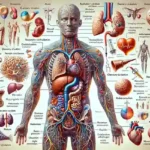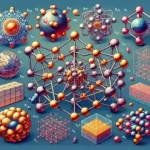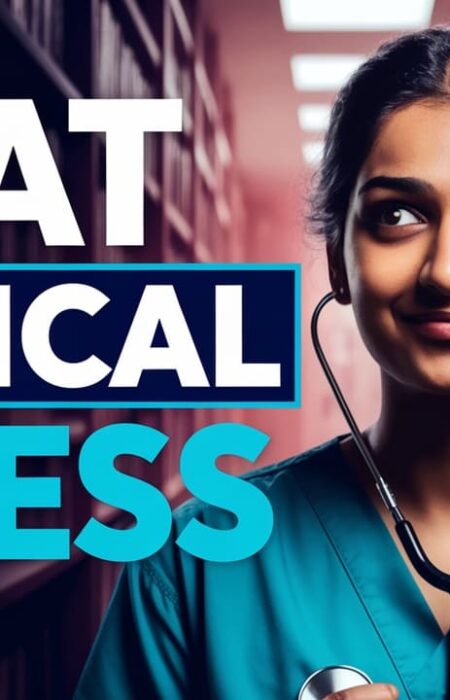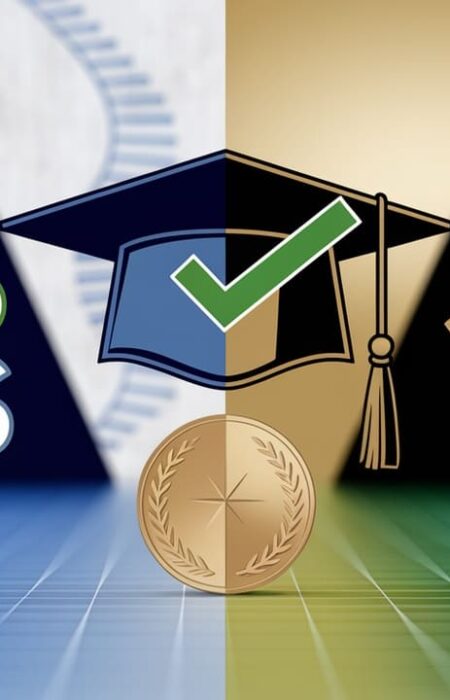Embarking on a journey to become a medical doctor is a lifelong dream for many. The pursuit of a Bachelor of Medicine, Bachelor of Surgery (MBBS) degree is a challenging yet rewarding path. As we look into an overview of the five-year journey of an MBBS program, we will explore the challenges, exam preparations, and book resources associated with each year.
1st Year MBBS: Laying the Foundation
Year one of MBBS is often focused on building a strong foundation in the basic sciences. Subjects like Anatomy, Physiology, and Biochemistry form the core foundation.
| Duration | 13 months (approx. 57 weeks) |
| Breakdown | Approx. 42 weeks (excluding 15 weeks) (Prelim/University Exam & Results -10 weeks + Vacation -3 weeks + Public Holidays -2 weeks) 42 wks x 39 hrs = 1638 hrs available hours for Teaching Learning |
| Subjects | Anatomy, Physiology, and Biochemistry |
| Complexity | This year involves a lot of memorization. Students will learn about the human body in much more detail than what was covered in the 11th and 12th standards. |
| Books to study in 1st year MBBS | Anatomy: BD Chaurasiya, Vishram Singh, Grey’s Anatomy, Netter’s Atlas, Ashwini sir Physiology: Indu Khurana, AK Jain, Guyton, Ninja Nerd, Najeeb Biochemistry: Vasudevan, Pankaja Naik, Ninja Nerd, Jambulkar |
Exam Preparation in First Year MBBS
– Regular self-assessment with practice questions and mock tests.
– Group study to enhance understanding and memorization.
– Utilizing standard textbooks like “Gray’s Anatomy” and “Guyton and Hall Textbook of Medical Physiology.” for reference.
– Ensure reading and correlating the topic with the clinicals.

Subjects in First Year MBBS (2024 updated)
The first year is all about building a strong foundation in basic sciences. Subjects like Anatomy, Physiology, and Biochemistry are covered.
Practicals in First Year MBBS
The practicals are very interesting. Cadaveric dissection in Anatomy, measuring heart rates and blood pressures in physiology and conducting lab experiments in Biochemistry.
Challenges in First-Year MBBS
This year involves a lot of memorization. Students will learn about the human body in much more detail than what was covered in the 11th and 12th standards. It is a very big jump from your NEET syllabus. You read close to 100 chapters/topics in just Anatomy. NEET has just 97 chapters in its entirety.
Books to study in First Year MBBS (2024 updated)
For Biochemistry, textbooks like Satyanarayan are recommended, though some find it challenging. Lippincott’s Biochemistry is another good option. Guyton in Physiology is great but for university exams, Indian authors should be preferred. Vishram Singh or BDC with Netter’s Atlas is the best combination.
| Books to study in 1st year MBBS | |
| Anatomy | B D Chaurasia’s Human Anatomy, Textbook of Anatomy by Vishram Singh, Grey’s Anatomy (only for reference), Netter’s Atlas, Ashwini sir eGurukul. |
| Physiology | Textbook of Medical Physiology by Indu Khurana, Textbook Of Physiology by AK Jain, Guyton and Hall, Ninja Nerd (free on youtube), Najeeb |
| Biochemistry | Textbook of Biochemistry for Medical Students by Vasudevan, Essentials of Biochemistry by Pankaja Naik, Ninja Nerd, Jambulkar Sir (videos on youtube) |
| Histology and Embryology (Studied with Anat) | Inderbir Singh’s Textbook of Human Histology, Inderbir Singh’s Human Embryology |
2nd Year MBBS: Clinical Exposure Begins
We love this year.
And it is also the most important year of your MBBS, contrary to the general advice. If you study all the 3 subjects in depth and with interest, you won’t face a lot of problems in your clinical year. All the diseases and their presentations are introduced in this specific year. Thus, if you ace this year, the clinical years will pass by breezily. (Read our guide on 2nd year, here)
In the second year, medical students start reading deeper into the complexities of the human body. Subjects such as Pathology, Pharmacology, and Microbiology become prominent.
| Duration | 13 months (approx. 57 weeks) |
| Breakdown | Approx. 42 weeks (excluding 15 weeks) (Prelim/University Exam & Results -10 weeks + Vacation -3 weeks + Public Holidays -2 weeks) 42 wks x 39 hrs = 1638 hrs available hours for Teaching Learning |
| Subjects | Pathology, Pharmacology, Microbiology |
| Challenges | Challenges include dealing with more extensive syllabi, understanding disease processes, and adapting to the clinical aspect of medicine. |
| Books to study in 2nd year MBBS | Pathology: Harsh Mohan, Robbins, Ramdas Nayak, Pathoma, Sketchy, Najeeb, Osmosis Pharmacology: KDT, Sharma and Sharma, GRG, Pixorise, Sketchy, Kaplan, Osmosis Microbiology: Sastry, Sketchy, Kaplan, Osmosis, Immunology: Pixorise, Osmosis, Najeeb |
Exam Preparation in 2nd Year MBBS
– Creating comprehensive notes to aid in revision.
– Use a lot of USMLE resources to study- they form a good basis.
– Go to reference books like “Robbins and Cotran Pathologic Basis of Disease” and “Katzung & Trevor’s Pharmacology Examination and Board Review, when you don’t understand difficult topics.

Subjects in 2nd Year MBBS (2024 updated)
The second year includes Pathology, Microbiology, and Pharmacology.
Challenges in 2nd Year MBBS
This year is about understanding diseases, drugs, and microorganisms. It requires a good grasp of the first year’s subjects as they form the basis for understanding these complex topics.
Practicals in 2nd Year MBBS
Apart from your subject practicals, your exposure to clinics also begins this year.
You go to the specific departments each month and learn basic patient interactions such as history taking, physical examination, and clinical presentation.
Books to study in 2nd Year MBBS (2024 updated)
Robbins, KDT, and Sastry are the conventions most people follow. (We advise for better aids, though.)
Robbins’ Pathology is highly recommended for its comprehensive coverage and clarity.
| Books to study in 2nd Year MBBS (2024 updated) | |
| Pathology | Textbook of Pathology by Harsh Mohan, Robbins and Cotran Pathologic Basis of Disease, Exam Preparatory Manual for Undergraduates: Pathology by Ramdas Nayak, Pathoma, Sketchy, Najeeb, Osmosis |
| Pharmacology | Essentials of Medical Pharmacology by KDT, Principles of Pharmacology by Sharma and Sharma, Review of Pharmacology by GRG, Shanbagh , Pixorise, Sketchy, Kaplan, Osmosis |
| Microbiology | Essentials of Medical Microbiology by Sastry, Sketchy, Kaplan, Osmosis |
| Immunology | Pixorise, Osmosis, Najeeb |
3rd Year MBBS: Clinical Subjects Begin
The third year marks the transition from preclinical to clinical subjects. Students are introduced to subjects like Ophthalmology, ENT, Forensics, and PSM. The challenge now is not just theoretical knowledge but also learning to apply it in real-life clinical scenarios.
| Duration | 10.5 months (approx. 46 weeks) |
| Breakdown | Approx. 35 weeks (excluding 11 weeks) (Prelim/University Exam & Result – 6 weeks + Vacation -3 weeks + Public Holiday -2 weeks) 39 hours/week = 35 X 39 = 1365 hrs |
| Subjects | Ophthalmology, ENT, Forensic, PSM |
| Challenges | This phase involves understanding how different specialties like ENT, Opthalmology, and PSM apply the basic sciences in clinical practice. PSM can be a little boring and Ophthalmology can be a little difficult if you can’t visualize concepts. (hehe, all puns intended). Clinic Visits>>>>> Theory. |
| Resources | Opthalmology: AK Khurana, Kaplan, Osmosis, Lecturio ENT: Dhingra, Practical ENT by Vikas Sinha, Lecturio, Osmosis PSM: Park, Exam Prep Manual PSM by Vivek Jain FMT: Vivek Jain, Gautam Biswas |
Exam Preparation in 3rd Year MBBS
– Clinical postings and bedside teaching sessions.
– Clinical case discussions to improve diagnostic skills.
– Textbooks like “AK Khurama” and “Dhingra” become essential references.
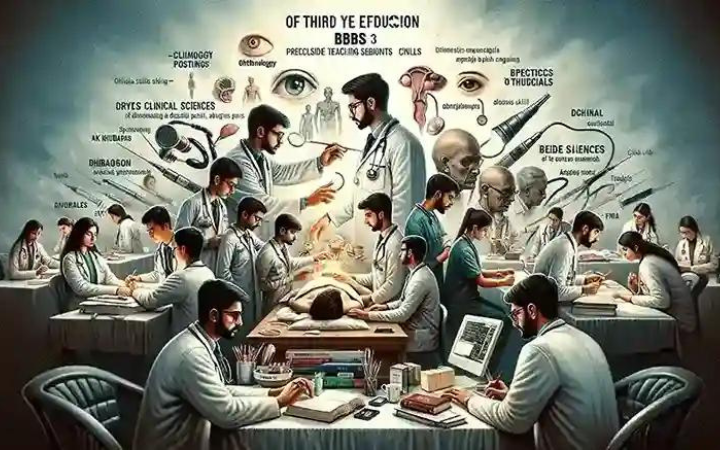
Subjects in 3rd Year MBBS
The third year includes Ophthalmology, ENT, Forensics, and PSM.
Note: There have been significant changes in 3rd year for the batch 2022-2023. ENT and Opthalmology have been shifted to 4th year. (NOOOOO).
Read our MBBS updates blogs to stay up to date.
Challenges in 3rd Year MBBS
This phase involves understanding how different specialties like ENT, Opthalmology, and PSM apply the basic sciences in clinical practice.
The challenge now is not just theoretical knowledge but also learning to apply it in real-life clinical scenarios.
PSM can be a little boring and Ophthalmology can be a little difficult if you can’t visualize concepts. (hehe, all puns intended).
Clinic Visits>>>>> Theory.
Books to study in 3rd Year MBBS
| Books to study in 3rd Year MBBS (2024 updated) | |
| Opthalmology | Comprehensive Opthalmology by AK Khurana , Marrow, Kaplan, Osmosis, Lecturio |
| ENT | Disease of Ear, Nose, Throat and Head Neck Surgery by Dhingra, Practical ENT by Vikas Sinha, Lecturio, Osmosis |
| PSM | Comprehensive Opthalmology by AK Khurana, Marrow, Kaplan, Osmosis, Lecturio |
| FMT | Review of Preventive & Social Medicine (Including Biostatistics) by Vivek Jain, Review of Forensic Medicine & Toxicology: including clinical and pathological aspects by Gautam Biswas |
4th Year MBBS: The Most Difficult Year
Year four involves extensive clinical rotations in various specialties like Pediatrics, Psychiatry, and Radiology. The challenge lies in managing multiple rotations, learning from different specialties, and deciding on a potential career path.
| Duration | 17.5 months (approx.78 weeks) |
| Breakdown | Approx. 57 weeks (excluding 21 weeks) (Prelim/University Exam & Result – 16 weeks + Vacation – 3 weeks + Public holiday – 2 weeks) (39 hours/week) = 57 X 39 = 2223 hrs |
| Subjects | Medicine, Surgery, Paediatrics, Gynaecology and Obstetrics |
| Challenges | 4th year is VAST. Medicine is infinite. Medicine with its allied subjects- Radiology, Dermatology, Anaesthesiology, and Psychology. Surgery and allied subjects- Again the syllabus is huge. Pediatrics- A lot of topics are covered from a lot of preclinical subjects. Gynaecology and Obstetrics- A mix of pathology and surgery. |
| Books to study in 4th Year MBBS | Medicine: Davidson, Harisson, coaching notes, Praveen Tripathi (psychiatry), Neena Khanna (Skin), Ajay Yadav (Anaesthesiology), MAK Radiology (Radiology) Surgery: Bailey, Manipal, Apurva Mehra (Orthopedics) Pediatrics: Ghai Gynaecology and Obstetrics: Dutta, Sakshi Arora, Shaw’s |
Exam Preparation in 4th Year MBBS
– Case presentations and discussions.
– Specialized textbooks depending on the chosen specialty, e.g., Nelson Textbook of Pediatrics”, Kaplan and Sadock’s Comprehensive Textbook of Psychiatry, Harrison’s Internal Medicine, etc. Use these books to read the essential topics, instead of focusing on everything. The fourth year is about selective studying
– Preparing for Step 1 of the United States Medical Licensing Examination (USMLE) or PLAB if considering postgraduate studies abroad.
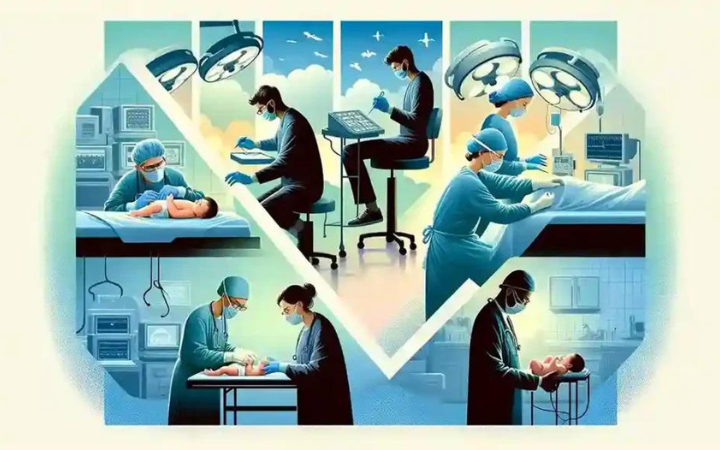
Subjects in 4th Year MBBS
This year has Medicine, Surgery, Paediatrics, Gynaecology, and Obstetrics.
Challenges in 4th Year MBBS
4th year syllabus is VAST. One can easily get overwhelmed by the amount of topics that need to be mastered in one year. Apart from the main 4 subjects there are allied subjects as well – Dermatology, Psychiatry, Orthopedics, Radiology, etc that add to the burden. So the challenge of 4th year MBBS in one word would be: Selectivity. You have to be selective in what you study and master that. Just like the 80/20 principle- the Pareto principle.
Books to study in 4th Year MBBS
| Books to study in 4th Year MBBS (2024 updates) | |
| Medicine | Davidson’s Principles & Practice of Medicine, HARRISON’S PRINCIPLES OF INTERNAL MEDICINE, coaching notes (Marrow, DAMS, Prepladder), Review Of Psychiatry by Praveen Tripathi (psychiatry), Illustrated Synopsis of Dermatology and Sexually Transmitted Disease by Neena Khanna (Skin), Short Textbook of Anesthesia by Ajay Yadav (Anaesthesiology), MAK Radiology (Radiology) |
| Surgery | Bailey, Manipal, Apurva Mehra (Orthopedics) |
| Pediatrics | GHAI Essential Pediatrics |
| Gynaecology and Obstetrics | DC Dutta’s Textbook of Gynecology, Sakshi Arora, Shaw’s Textbook of Gynaecology |
Year 5: Preparing for the Future
The final year of MBBS is about gaining clinical experience. Doctor, and appear for the final exams. The challenge now is not only academic excellence but also preparing for the transition into medical practice.
Exam Preparation
– Comprehensive revision of all subjects.
– Preparing for the final exams, often divided into written and practical exams.
– Exploring postgraduate options and preparing for relevant entrance exams like the National Eligibility cum Entrance Test (NEET-PG) in India.
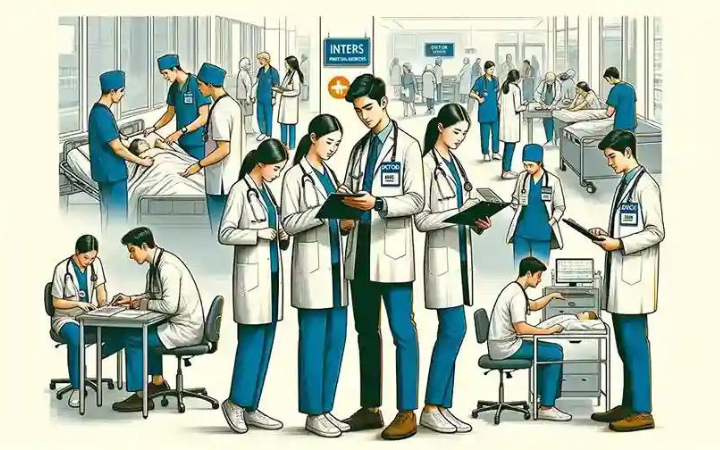
Subjects
You have to have all the 19 subjects under grasp. All these subjects will be needed for you to come to a correct diagnosis.
Challenges
It is a challenging year. You have to manage the clinic shifts, which last till late into the night, with your exam preparations.
Conclusion
A five-year MBBS journey is demanding, but it is also a transformative experience that prepares students to save lives and make a difference in the world of healthcare. Each year brings its own set of challenges, but with dedication, the right resources, and a passion for medicine, the path to becoming a doctor becomes more manageable.
Remember that medical textbooks are your best friends throughout this journey, and continuous self-assessment is key to success. Whether you aspire to be a general practitioner or a specialist, the MBBS program equips you with the knowledge and skills to excel in your chosen field. Embrace the challenges, keep studying, and never lose sight of your goal to heal and serve humanity.
